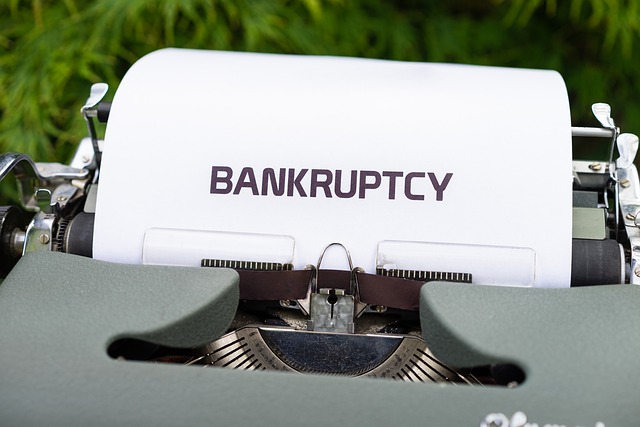Are falling behind on your debt payments? Then there is a chance you are being pursued by debt collectors. They barrage you with communication in an effort to get you to pay off your debt, whether or not it is the best move for you. Luckily, there is an 11 word phrase to stop debt collectors from reaching out. But that won’t solve all of your problems. Depending on how far behind you are, it may be time to consider filing for bankruptcy.
When filing bankruptcy, you can choose to file under Chapter 7 or Chapter 13. Although both are geared to help bankrupt people get debt relief, there are significant differences between them. Read on to understand the differences between the two and why filing Chapter 13 may be a better option than Chapter 7 bankruptcy. Before getting started on Chapter 13 bankruptcy, let’s consider Chapter 7 bankruptcy. There are certain requirements you have to meet to be eligible for Chapter 7. If you would like to see if you are eligible, consider taking a Chapter 7 means test calculator. This can help you understand if this is even an option.
What is Bankruptcy?
Bankruptcy refers to a legal proceeding that involves a person or business that cannot repay outstanding debts. A person is considered bankrupt when they can no longer repay their debts with the amount available after paying for living expenses- disposable income.
Besides taking on more debt than you can pay, there are other reasons you can become bankrupt. For example, unexpected medical expenses, losing a job, or divorce. Whatever the cause for being bankrupt, filing for bankruptcy can sometimes be the best debt relief option available,
Declaring bankruptcy helps you manage your debt and offers you a way to start over and become more financially responsible. The bankruptcy process begins with the debtor filing a petition. However, there are two types of bankruptcy- Chapter 7 and Chapter 13. How are the two different?
How is Chapter 13 Bankruptcy Different from Chapter 7 Bankruptcy?
Although both Chapter 7 and Chapter 13 bankruptcy offer individuals solutions to their outstanding debts, they offer this in different ways. Here is an in-depth guide on each that will help you understand their differences;
Chapter 7 Bankruptcy
It is commonly referred to as liquidation bankruptcy since the trustee assigned to the case liquidates the debtor’s non-exempt assets to get money to pay off the debtor’s unsecured creditors. The trustee will value your assets, and based on your outstanding debts; you might get to keep your home and car alongside other possessions.
However, if you have excessive properties like a second home or two cars, the trustee will liquidate them to repay your creditors. Usually, the liquidation process is quick, and in the end, the court is likely to grant you bankruptcy discharge. Nonetheless, there are some debts that the court cannot discharge, like government debts, outstanding alimony, and child support.
Chapter 7 bankruptcy is ideal for individuals who are entirely unable to make payments on their outstanding debts. Therefore, if you have lesser disposable income than before to make your usual monthly payments, Chapter 13 bankruptcy is the better option for you,
Under Chapter 7, there is a priority rule that outlines the order in which the outstanding debts are to be paid. Unsecured creditors are put in separate categories and classes, with each class given a priority for receiving payment. Since secured debts are backed by collateral, they are not prioritized. Unsecured priority debts like tax debts and child support are paid first. Next, secured debts are paid, and finally, non-priority unsecured debts are paid last on a pro-rata basis.
Chapter 13 Bankruptcy
Unlike Chapter 7, which focuses on liquidation, Chapter 13 offers a new payment plan to get rid of debt. So, when you file your petition, the trustee assigned to your case will review your financial situation.
As a debtor, you will be asked to compile a list of all your creditors and the amount you owe to each. Additionally, you must submit details of your income, property, sources of income, and monthly expenses. You will be asked to also submit your proposed repayment schedule on how you will settle the remaining debt. Before getting started on Chapter 13 bankruptcy, it’s important that you consider the cost of the process. Each state has its own standard of cost, and you will need state-specific information to understand what you may have to pay. So, you would want to ask “how much does it cost to file bankruptcy in Wisconsin,” or “how much does it cost to file bankruptcy in Minnesota,” to get the information that you really need.
When filing Chapter 3 bankruptcy, you commit your disposable income to debt for the next three to five years. You will meet with your creditors during the creditors’ meeting and see if they agree to your proposed repayment schedule. After the meeting, you will not be in direct contact with them; instead, any agreed-upon payment will be made by an impartial bankruptcy trustee who will then distribute the money to the creditors.
Reasons You May Choose Chapter 13 Bankruptcy
There are numerous advantages you enjoy by choosing to file Chapter 13 over Chapter 7 bankruptcy. Here are four compelling reasons to choose to file Chapter 3 bankruptcy;
-
You Retain Your Assets
Chapter 7 bankruptcy focuses on liquidating assets and using the proceeds to repay your debts. Therefore, under chapter 7, you risk losing your assets. Fortunately, under Chapter 13, the trustee is not legally allowed to liquidate your assets. Instead, you need to create a debt payoff schedule and stick to it. Therefore, you get to keep your assets.
- You Get a Debt Relief Option If You’re Not Eligible For Chapter 7 Bankruptcy
Before filing Chapter 7 bankruptcy, you need to meet some stringent requirements. So, what happens if you don’t meet the qualifications to file for Chapter 7 bankruptcy? You can file for Chapter 13 bankruptcy and get the debt relief you desire.
- Protect Your Co-debtor
When you file your bankruptcy petition with the court, you will be placed under an automatic stay. Automatic stay forbids your creditors from taking any measures to pursue you for outstanding debts. While it may ease your mind, it could negatively impact your co-debtor. If you have someone who owes debt alongside you, like a spouse or a joint account holder, they are not protected under Chapter 7 automatic stay. So, while the debtors may not pursue you, they will go after your co-debtor. Under Chapter 13 bankruptcy, there is a co-debtor automatic stay that prevents creditors from pursuing you and your co-debtor.
- Get Additional Time to Pay Your Debt
If your disposable income has reduced and you can afford to repay your debt but not the total amount, Chapter 13 is ideal for you. It helps spread out your payments to enable you to make monthly repayments you can afford.
Have You Considered These Debt-Relief Alternatives?
Does filing for bankruptcy sound too drastic? While the automatic stay and bankruptcy discharge are tempting, bankruptcy is not always the answer to getting out of debt. There are other debt-relief options that can help you manage debt, get out of debt and restructure your financial life. So, before rushing to file either Chapter 7 or 13 bankruptcy, consider these debt-relief options;
- Debt consolidation
- Debt management plan
- Debt settlement
- Financial counseling
Filing bankruptcy could negatively impact your credit score, and it comes with additional expenses too. Therefore, consider these options before filing bankruptcy.
Call us today to consult our bankruptcy lawyers to understand these other options and decide which is best for you. We will offer guidance based on your financial situation, needs, and future. However, after our consultation, we will allow you to make a decision based on your judgment.
Related Posts












